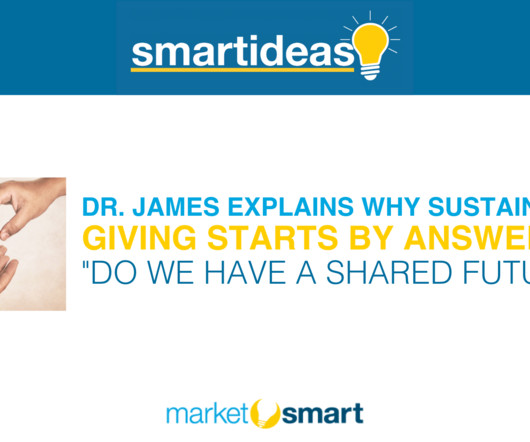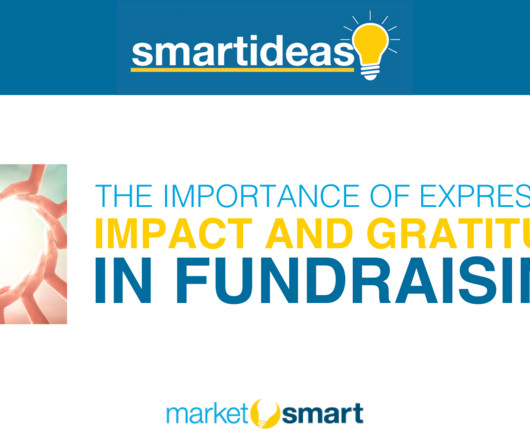Your mission is the gift. Really.
Nonprofit Marketing Blog
AUGUST 17, 2012
As Dooley details, fundraising gifts work based on a psychological principle of “reciprocity” – the innate human obligation to return a favor bestowed with a favor given. They’ll help you, but they’ll resent you for it. Often we turn them into mechanisms to help us avoid the ask: “We have a budget shortfall – let’s hold a dinner!”.










Let's personalize your content